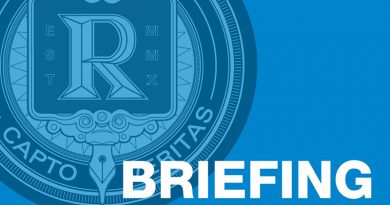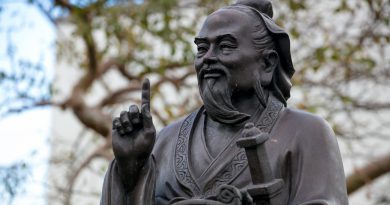Confucius Institute: China’s Use Of Soft Power Or Bridge Between Cultures?
In the early 1990s, China experienced an economic boom that would push it to become the world’s second largest economy as well as an emerging power.
The Chinese government has made use of its exponential economic growth by creating organizations that represent the interests of the country, one of which is the Confucius Institute.
The institute has more than 480 offices worldwide, including one at Wolfson Campus. Soft power, according to the English Oxford Dictionary, is the “persuasive approach to international relations, typically involving the use of economic or cultural influence.”
Based on that definition, one may assume the Confucius Institute is merely an instance of soft power being exercised upon our nation whose only function is to do the bidding of the totalitarian, single-party dictatorship that is the People’s Republic of China (PRC); however, as it typically turns out, the truth is more complicated than the Red versus Blue approach we often take as the norm.
The PRC has been criticized for the annexation, occupation and marginalization of the Tibetan people—a predominantly Buddhist ethnic group in Western China.
Tibet is not the only controversial region in China. For decades, Taiwan has tried to gain statehood; however, the PRC has maintained what is often referred to as the “One China Policy,” meaning that under no circumstances the PRC will consider Taiwan an independent nation.
President Donald J. Trump, however, has been a known critic of the PRC, and has recently made headlines by breaking tradition with his predecessors and personally taking a call from ROC head-of-state Tsai Ing-wen, a move seen as a provocation by the PRC.
In regard to the controversial stance of the U.S. and Taiwan, I spoke with the director of the Confucius Institute at MDC Xuejun (Jim) Yu. He stressed that the Confucius Institute is “not a political institution” but that it instead focuses on Chinese language and culture.
He mentioned the UN does not recognize Taiwan as an independent nation and that most inhabitants of the island are Chinese by culture anyway, dismissing much of the controversy that surrounds the ROC. He added that the goal of the Institute was to act as a bridge between diverse cultures. Miamians are no strangers to diversity, and by having an active foreign actor like the Confucius Institute introduce a new cultural perspective to our community, we are being offered the opportunity to learn a language spoken by over a billion people, become familiar with their culture, and explore new commercial partnerships beyond our immediate surroundings.
Even if the Chinese government has very serious flaws, the Confucius Institute serves as a way to better understand China and its inhabitants. The knowledge it brings can help us better understand the Chinese culture and language and, in the long run, secure a brighter future for the citizens of both nations.
Yu’s words summarize my thoughts in a single sentence: “It is precisely because we understand just how difficult it is to have an international reach that we exist to lift those barriers for you and to bring you the very best opportunities to connect with China.”




